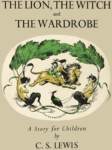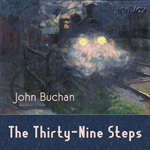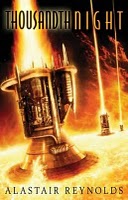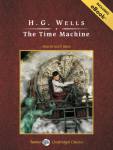
 The SFFaudio Podcast #113 – Jesse and Eric S. Rabkin talk about Stupidity and Intelligence in Science Fiction (and Fantasy).
The SFFaudio Podcast #113 – Jesse and Eric S. Rabkin talk about Stupidity and Intelligence in Science Fiction (and Fantasy).
Talked about on today’s show:
Johann Wolfgang von Goethe’s The Sorcerer’s Apprentice, Mickey Mouse, Fantasia, Christopher Marlowe‘s The Tragicall History of the Life and Death of Doctor Faustus, Brothers Grimm Clever Hans (the fairy tale), Clever Hans (the horse), War With The Newts by Karel Čapek, Excerpt from (Book Two – Up the Ladder of Civilisation), trephination, “there are some things man was not meant to know”, evil science and evil scientists, R.U.R., Mary Shelley’s Frankenstein, Frankenstein is an egotist whereas the creature wants community, Chapter 11 of Frankenstein, intellect vs. empathy, “One man’s life or death were but a small price to pay for the acquirement of knowledge which I sought.”, the ideology of intelligence is suspect, Gulliver’s Travels, Laputa, philosophers, The Clouds by Aristophanes, “head in the clouds”, BBC Radio dramatization of Lysistrata, The Black Cloud by Fred Hoyle, “the big bang”, telepathy, Gregg Margarite, “Genius in not a biological phenomenon.”, “stupid people can have smart babies and smart people can have stupid babies”, eugenics, sterilization programs, “we know so little about what we mean by intelligence”, “we breed against the outliers”, “If I see further than others it is because I stand on the shoulders of giants”, Sir Isaac Newton, Newton vs. Leibniz, Darwin vs. Wallace vs. Darwin’s grandfather, Robert A. Heinlein, “steam engine time”, Columbus and the egg, humans (persons) can compound our intelligence, Flowers For Algernon by Daniel Keyes, Charly, “we shouldn’t define humanity by our intelligence”, The Time Machine by H.G. Wells, flowers from Weena, “fundamental humanity has to do with emotion and not intelligence”, He, She and It by Marge Piercy, programming a robot with stories, Yod is a robot-like golem, “it was immoral to create a conscious weapon”, The Doomsday Book by Connie Willis, Eric is the world’s least reliable critic of The Doomsday Book, The Invisible Man by H.G. Wells, philosophy of science, the meaning of weapon, We by Yevgeny Zamyatin, tool vs. weapon, “we have one mad scientist after another”, Gojira!, Ozymandias, Watchmen, Understand by Ted Chiang, “talking to babies”, “if everyone in the world around you is an idiot…what kind of relationship can you have with the world”, His Masters Voice by Stanisław Lem, Hogarth is an incredibly intelligence person, Edgar Allan Poe, Audible Frontier’s Solaris: The Definite Edition, The Futurological Congress, Isaac Asimov, Eric puts on his professorial hat, nous, the etymology of the word “intelligence”, Asimov reads between the lines for you, the etymology of the word “stupid”, what’s with the word “sentient” in Science Fiction?, Beyond Lies The Wub by Philip K. Dick, ansible, “sentience is the bag that we put all our coding for equally human”, was Larry Niven the prime promulgator of the SF version of “sentience”?, The Island Of Doctor Moreau by H.G. Wells, “words are a map on the world”, The Time Machine, evolution and the clash of the classes, Wells respects the intelligence of his readers, Morlocks vs. Eloi, the King James version of the Bible, “Eloi Eloi Lama Sabachthani“, Hugo Gernsback, Amazing Stories, “whizz bang sensofwunda”, The New Accelerator by H.G. Wells, “the warp drive is not important”, “the ansible is not important”, “we are all time travelers”, “in Wells’ greatest works he leaves some part of the story open”, “but whether this was a reprieve for us or them only time will tell”, Experiment In Autobiography by H.G. Wells, The Gods Themselves by Isaac Asimov, “Against stupidity the gods themselves contend in vain”, Friedrich Schiller, reporters became cynical now they just go see what’s happening on Facebook, The Marching Morons by C.M. Kornbluth is public domain, much of Kornbluth is PD because he died so young, The Space Merchants by Frederik Pohl and C.M. Kornbluth, Little Black Bag by C.M. Kornbluth, Idiocracy, stupid people have lots of (stupid) babies (?), what’s wrong with The Marching Morons?, PLENTY!, “The Marching Chinese”, Thomas Robert Malthus, eugenics and dysgenics, what ties do genetics and intelligence have?, a very high fraction of American presidents have been left handed, immigrant groups produce terrific comedians, Microcosmic God by Theodore Sturgeon, storing up ideas for my “word hoard”.

Posted by Jesse Willis

 First published in Pall Mall Magazine, along with an H.G. Wells novel and a Jack London short story, The Point Of Honor is a Joseph Conrad novella that had its genesis in the real duels that two French Hussar officers fought in the Napoleonic era. Their names were Dupont and Fournier, which Conrad disguised slightly, changing Dupont into D’Hubert and Fournier into Feraud.
First published in Pall Mall Magazine, along with an H.G. Wells novel and a Jack London short story, The Point Of Honor is a Joseph Conrad novella that had its genesis in the real duels that two French Hussar officers fought in the Napoleonic era. Their names were Dupont and Fournier, which Conrad disguised slightly, changing Dupont into D’Hubert and Fournier into Feraud.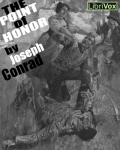 The Point Of Honor (aka The Duel)
The Point Of Honor (aka The Duel)
























